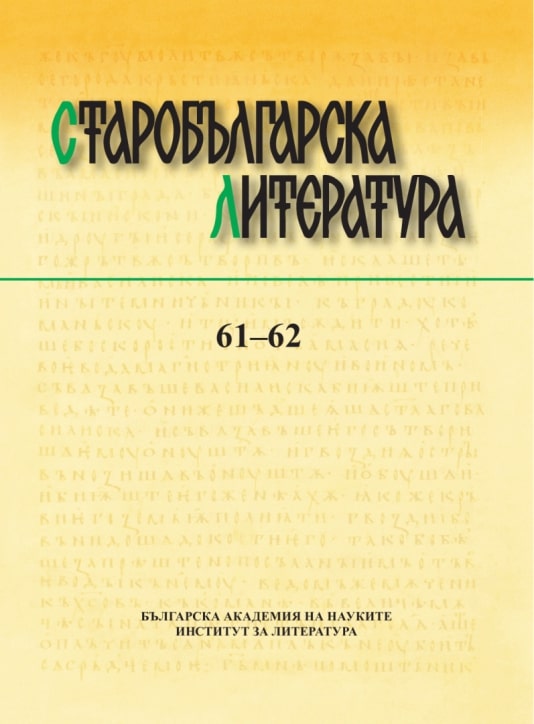Ръкопис ЦИАИ 1160 и значението му за каноничното право на Балканите през XIV в.: ексцерптите от правилата на Трулския събор
Ms. CHAI 1160 and Its Importance for Canon Law in the Balkans during the Fourteenth Century: Excerpts from the Canons of Trullo
Author(s): Mariyana Tsibranska-KostovaSubject(s): Christian Theology and Religion, History, Language studies, Language and Literature Studies, Law, Constitution, Jurisprudence, Cultural history, History of Law, Studies of Literature, Middle Ages, Theology and Religion, Canon Law / Church Law, Translation Studies
Published by: Институт за литература - БАН
Keywords: Canons of the Council in Trullo; South-Slavic Canon Law miscellanies from the fourteenth century; Palaiologan legal tradition
Summary/Abstract: This article examines the earliest extant collection of ecclesiastical legislation (1360s-1380s) in Bulgaria, its significance for studying Byzantine Canon Law, and the history of its reception in the Second Bulgarian Kingdom. Ms. 1160 of the Bulgarian Church-Historical and Archival Institute (CHAI) already has a phototype edition, but neither its compilation program, clearly linked to Bulgarian monasticism, nor its provenance have been sufficiently studied. It is one of the five earliest exemplars of a Byzantine prototype, conventionally known in Slavic studies as Pseudo-Zonaras, which is similar but not identical to the provincial Byzantine Nomocanon of Cotelerius. The content of the manuscript is richer than the textual core of the Nomocanon, including texts unknown in any other available copy. These unique texts highlight its currency in the 14th century. Regulations for clergy, especially monks, predominate. The author offers an explanation why the note by the principal scribe of the manuscript, the monk-priest Simeon, is placed after a text about the role of asceticism. She examines a block of sixteen rules from the Council in Trullo in its role as a textual “convoy,” concluding that its translation does not correspond to the translation of the same rules in the Slavonic Kormchaia books, although it follows the general translation principles of the Nomocanon corpus. The article also proposes that the inclusion of this textual block in the codex is not accidental, and maintains that it is methodically justified to study the earliest copies of Pseudo-Zonaras in order to determine the historical context that gave rise to this particular translation, so that we can establish in what degree it reflects the prototype and in what it constitutes a compilation. CHAI 1160 is a Slavonic translation of a Byzantine Canon Law codex from the first quarter of the fourteenth century in Palaiologos Byzantium, when canonical and secular law texts were newly bound together to restore the Byzantine legal tradition after years of Latin domination.
Journal: Старобългарска литература
- Issue Year: 2020
- Issue No: 61-62
- Page Range: 278-306
- Page Count: 29
- Language: Bulgarian, Old Slavonic, Old Bulgarian
- Content File-PDF

